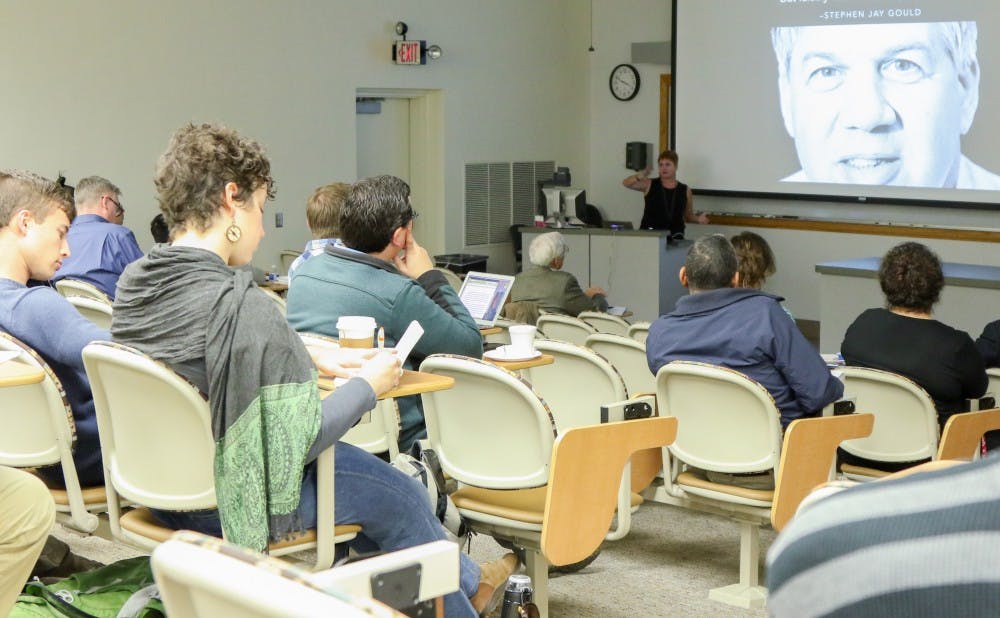Name a famous physicist. Chances are, you can come up with one—Einstein, Galileo, Newton and Tesla are all household names. Now name a female physicist.
Ágnes Mócsy, a professor of physics and astronomy at the Pratt Institute in New York City, spoke Wednesday at a colloquium hosted by the Duke Department of Physics and Steffen Bass, associate chair of teaching in the physics department. The presentation, which addressed the lack of gender and racial diversity in the physical sciences, was titled “Who is Doing Science, Who Isn’t and Why?”
“I want to start out by making a confession,” Mócsy said at the start of her presentation, “I’m a racist, and I’m a sexist. Do I believe I am? No. I don’t think that I live my life accordingly. But I am, and most of us are. Because we are a part of society, we have biases deeply embedded in us.”
She continued her candid address to the small audience by joking, “Thank you for being here. I know some people may have opted for a root canal rather than sitting through another diversity talk.”
Mócsy spent the majority of the talk addressing why people should care about diversity, before presenting her proposals to increase it.
Using audio and video clips from Desmond Tutu, a South African social rights activist, and American astrophysicist Neil DeGrasse Tyson, Mócsy outlined the nature of bias and the challenges of encouraging diversity—or, as she prefers to call it, inclusion. She noted that the problem is not just with one demographic, but with all of mankind, as we are all products of our own biased societies.
“[Most people] don’t ‘have it out’ for women—but somehow, implicit bias finds its way in [to many fields]," she said. "[Subconscious bias] doesn't explain everything, but it can explain a lot, and the scientific community isn’t immune."
Mócsy detailed several experiences during her professional career in which her gender affected her ability to be comfortable in her work environment.
“When I started my undergraduate studies, it was almost 50-50, male-female," she said. "Then I moved to Brookhaven Lab, and that’s the place where it really sunk in. Most of the time in the theory department, I was the only woman in the room."
She went on to present instance after instance in which, at prestigious universities across the country, an entire department or research team consisted of only one or two women or people of color. She noted that there is much evidence showing that having an diverse working group increases productivity.
A lack of diversity in the workforce could also lead to bigger problems down the road, Mócsy explained.
“Most children born today in [the United States] are not white," she said. "Not too much further down the line, we are going to have a major problem in the workforce if we are not prepared to embrace [everyone].”
However, before we can fix the problems facing the next generation, we must change the narrative, she noted. For example, she said we must defeat the idea of the “lone genius”—the false idea that any great achievement can be attributed to just one person.
“We don’t tell the stories of how we worked together," Mócsy said. "But we are here because we worked hard, we had resources and mentors. This is a communal work.”
She also discussed possible ways to solve these problems. Rather than offering a new solution altogether, she focused on a new, open approach to the work we have already begun.
“The first step to action is awareness,” Mócsy said. “Diversity is a willingness to learn from others who are not the same as we are... It does not mean we are comfortable, but it is still important.”
Get The Chronicle straight to your inbox
Signup for our weekly newsletter. Cancel at any time.

